News & Stories
2025
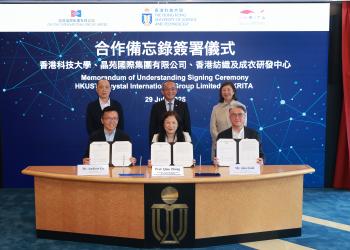
News
HKUST, Crystal Group, and HKRITA Signed Framework Agreement
The Hong Kong University of Science and Technology (HKUST) has signed a tripartite framework agreement with global apparel manufacturer Crystal International Group Limited (Crystal Group) and the Hong Kong Research Institute of Textiles and Apparel (HKRITA) to integrate advanced artificial intelligence (AI) throughout the textile production process. By developing industry-specific large language model Textile-GPT for textiles, the collaboration aims to enhance intelligent design, optimize production process, streamline supply chain management, automate quality inspections, and foster innovation in smart wearables.
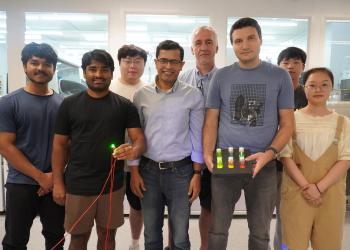
News
HKUST’s Next-Gen QRLEDs Transform Smartphone & TVs with Ultra-Bright and Color-Rich Displays
Researchers at the Hong Kong University of Science and Technology (HKUST) School of Engineering have cracked a major challenge in display technology by inventing the world’s brightest and most energy efficient quantum rod LEDs (QRLEDs). These next-generation QRLEDs feature optimized deep green emission at the top of the color triangle, enabling displays with unprecedented color purity and a maximized color gamut. Boasting a longer lifespan and triple the brightness of previous models, these cutting-edge light sources deliver energy-efficient, ultra-vivid visuals for smartphones, televisions, and AR/VR devices while further enhancing color performance.
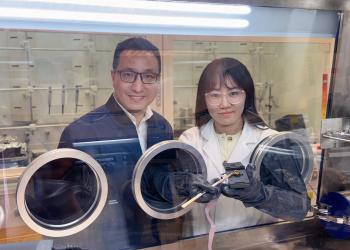
News
HKUST Unveils Critical Nanoscale Phenomena
In a significant advancement for boosting renewable energy generation development, the School of Engineering of the Hong Kong University of Science and Technology (HKUST) has taken the lead in breaking through studies of the nanoscale properties of perovskite solar cells (PSCs). This initiative has resulted in the development of more efficient and durable cells, poised to substantially diminish costs and broaden applications, thereby connecting scientific research with the needs of the business community.
2022
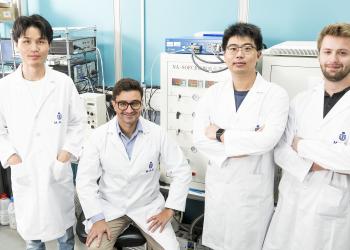
News
HKUST Researchers Design Iron-Based Cathode to Achieve Record Performance for Protonic Ceramic Fuel Cells
Researchers at the Hong Kong University of Science and Technology (HKUST) have designed an innovative iron-based cathode material to achieve record performance for protonic ceramic fuel cells, marking a significant step forward in the development and commercialization of this promising renewable energy technology.
2021

News
Active Liquid Crystal Systems Examined in Search of Autonomous Materials Systems
Liquid Crystals (LC) are widely deployed in display technology and optical fibres. From smartphones in your pockets to large screen TVs, LCs are everywhere, as this special state of matter has been found in colorful soap bubbles as well as certain living tissues.
2020

News
HKUST Researchers Develop the World’s Strongest Polymer Nanomembrane
The Importance of Sustainable Polymer MaterialsPolymers are a fundamental component of modern life, used in a wide range of applications from packaging and textiles to medical devices and construction materials. The importance of polymers cannot be overstated, as they provide numerous benefits such as durability, flexibility, and resistance to chemicals and heat. However, the plastics industry has faced growing criticism in recent years due to its significant contribution to environmental pollution and waste management issues. As a result, there is an increasing emphasis on sustainability in the plastics industry, driven by evolving stakeholder expectations and environmental awareness. This shift towards sustainability is crucial for the long-term viability of the plastics industry, as it requires the development of innovative and eco-friendly strongest polymer materials that minimize environmental impact while maintaining performance and functionality.
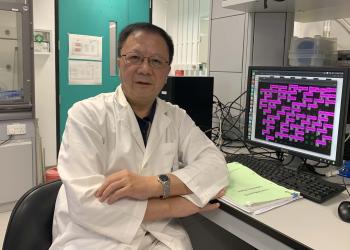
News
HKUST Researchers Developed the World's First Sound-transmitting Glass Material
Glass is a sound-proof material, but researchers at the Hong Kong University of Science and Technology (HKUST) have discovered a way which allows sound transmission for glass, opening a new horizon for the potential development of smart phones and other electronic devices that can function under water, while also offering greater flexibility to building design.Using the theory of local resonance, a research team led by Prof. WEN Weijia from the Department of Physics has found that by crafting a structured pattern of openings in between glass panes, the sound waves’ mode of vibration will be altered, allowing sound to pass through.
News
HKUST Research Team Successfully Discovers New Material Generation Mechanism for Chip Design, Quantum Computing and Noise Reduction
The research team of the Hong Kong University of Science and Technology (HKUST) has recently made important progress in the field of new materials. Combining the characteristics of two-dimensional materials and topological materials, the team has for the first time discovered a universal generation mechanism of new materials with "type-II" Dirac cones. Many extraordinary properties of the material are realized in experiments, which addressed the key issue that the material could only be obtained sporadically under stringent limits. This mechanism can guide the preparation of new two-dimensional materials that have specific directional responses to external signals such as electric fields, magnetic fields, light waves, sound waves, etc., and will provide valuable applications for modern electronic communications, quantum computing, optical communications, and even sound insulation and noise reduction materials.








